FVE president: “One Health approach is essential”
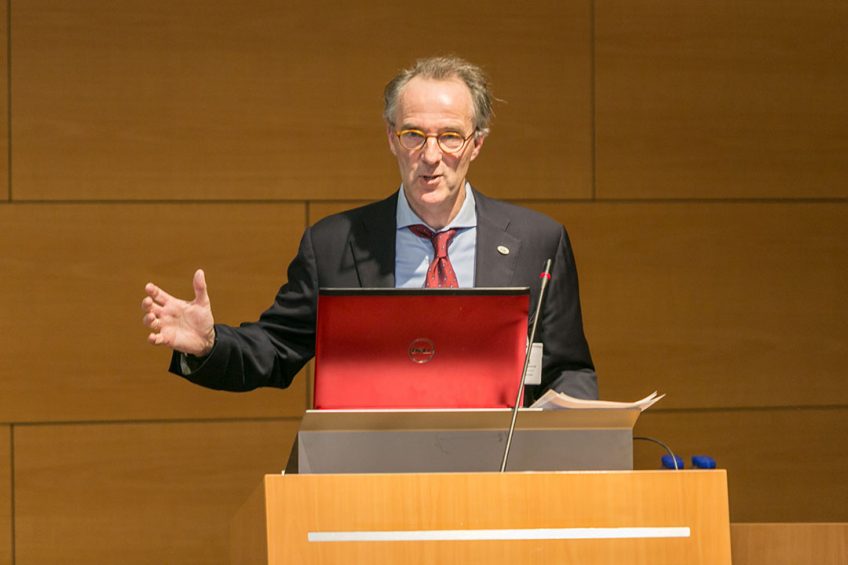
Dutch veterinarian Rens van Dobbenburgh has been president of the Federation of Veterinarians of Europe (FVE) since June 2019. Poultry World caught up with him to talk about the role of FVE and the challenges to be faced.
PROFILE:
Rens van Dobbenburgh is at the helm of one of the largest and most influential veterinary professional organisations in the world. Before his election as FVE president in June 2019, Van Dobbenburgh was a board member of the Royal Dutch Veterinary Association (KNMvD) and of the European Association of Veterinary Practitioners (UEVP). The mandate for his current position is 2 years, and can be prolonged once for another 2 years.
FVE covers a wide range of topics
“That they elected me is probably because I am a fairly experienced veteran,” laughs Rens van Dobbenburgh. Notwithstanding his experience, he was very excited to be elected by the FVE General Assembly. “There are so many things going on in the animal sector at the moment and being FVE’s president is a major responsibility. Fortunately, I have a strong team around me, which makes a huge difference.” FVE covers a wide range of topics, including animal disease outbreaks, antibiotic policy, animal welfare, food safety, veterinary training and, of course, Covid-19. Alongside his FVE presidency Van Dobbenburgh still holds his position as Chief Veterinary Officer (CVO) at Covetrus. “I am glad that Covetrus has given me the space and time to work for the FVE. It’s part of their vision to support the veterinary profession.”
About the Federation of Veterinarians of Europe (FVE)
FVE has member organisations in 40 European countries, including all EU member states. Through these members FVE represents around 300,000 veterinarians. FVE aims to enhance animal health, animal welfare and public health by supporting veterinarians in fulfilling their roles in the best possible way.
Represent the interests of all veterinarians
As chairman of the FVE, Van Dobbenburgh sometimes has to tread lightly. As an organisation FVE has to represent the interests of all veterinarians in the 40 member countries, “Of course, I always try to find the communis opinio in what we all try to achieve. Quite an aim considering that the FVE represents several categories of veterinarians, veterinarians in clinical practice, veterinarians in universities and research institutes, veterinarians working for the authorities and in the industry. “And on top of that we have to divide our attention between many important topics, such as veterinary medicines, their availability and proper use in veterinary practice, animal health in general, animal welfare, and food safety.”
Antibiotic resistance is a still growing problem worldwide.”
EU Regulation on Veterinary Medicinal Products and Regulation on Medicated Feed
A key topic when he took office in 2019 was the EU Regulation on Veterinary Medicinal Products and Regulation on Medicated Feed. Van Dobbenburgh: “We worked on this piece of legislation for no less than 10 years. It will come into force on 28 January 2022. This EU regulation streamlines all current legislation on veterinary medicines.” It underlines the position of the veterinarian as gatekeeper for the responsible use of veterinary medicines. Together with the farmer, a lot can be done to strengthen the health and welfare of animals to prevent infectious diseases and reduce the need for antimicrobials. A nice example is the current work on improving peri-hatching conditions. The new Veterinary Medicines Regulation also highlights the EU as a global leader in the prudent use of antibiotics.
Despite Covid-19, our work and our challenges are ongoing…”
EU Animal Health Law
Another important item on the Van Dobbenburgh’s agenda is the EU Animal Health Law. This piece of legislation mainly deals with the prevention and control of transmissible animal diseases in the livestock sector. It aims for early detection and control of animal diseases, including emerging diseases linked to climate change. It clarifies responsibilities for veterinarians, farmers and others dealing with animals.

Vets’ role in welfare
Van Dobbenburgh: “An important issue close to the heart of every veterinarian is the protection of animal welfare, for example, during long distance transports.” In May of this year, the Netherlands took a leading position on this topic which concerns the export of live animals outside of the EU. During long distance transports, the animals need to be able to rest at properly equipped resting places. Where it appeared that the facilities at such resting places outside the EU could not be guaranteed, or even the existence of such resting places was uncertain, the Dutch authorities have put all requests for certificates for export outside the EU on hold.
According to Van Dobbenburgh, the new European Commissioner for Health and Food Safety, Ms Stella Kyriakides, is committed to animal welfare. “In a recent video-conference we had with her, Ms Kyriakides underlined her position and acknowledged the role of veterinarians in the protection of animal welfare, on the farm, during transport and at the time of slaughter.”

Responsible use of antibiotics
Globally, other topics take precedence over welfare issues. “The responsible use of antibiotics, to name but one important issue. Antibiotic resistance is a still growing problem worldwide. I am happy to see that the whole veterinary profession is making progress. For example, since last year important antibiotics can only be used on prescription basis in the US.” In the context of reducing the use of antibiotics worldwide, FVE is in favour of a global ban on the use of antibiotics as a growth promoter and for the purpose of disease prevention. Here the FVE president also touches upon the importance of the ‘reciprocity principle’ that applies worldwide. “It would be strange if we, the EU member states, were to allow the import of meat that has been produced in a way that is not allowed within the EU.”
 The who’s who in the global poultry industry talk to Poultry World…
The who’s who in the global poultry industry talk to Poultry World…
click here for more interviews
Covid-19: Animal spread risk low
Currently the FVE has been heavily involved with handling the fallout from Covid-19. “So far there is no evidence that animals play a substantial role in the spread of Covid-19 in the human population. We do know that certain animal species are susceptible, felines and mustelids, like mink, for example. But scientists see that in animals the reproduction and transmission is generally low and the transmission even lower,” says Van Dobbenburgh. He continues: “Having said that, from the start of the pandemic we expected that Covid-19 could have a negative impact on the veterinary community. We have been helping members in their work to have veterinary medicine recognised as an ‘essential activity’.” The FVE has also worked to make sure that all supplies could continue, that they remained in the so called ‘green lane’. In addition, the FVE has started online round table conferences to update its member veterinary organisations on best practices for problem solving.
Avian influenza – an ongoing challenge
“Despite Covid-19, our work and our challenges are ongoing, too. Avian influenza will continue to play a worldwide role over the coming years. I worked as a poultry veterinarian during bird flu outbreaks in the Netherlands and experienced first-hand the impact that this has on poultry operations, farmers and veterinarians. We often forget the importance of vets’ well-being. With Covid-19, many veterinarians have experienced difficulties in coping with the mental and economic pressures. That is something the FVE also needs to address.”
Interconnected: Human and animal health and ecosystems
Van Dobbenburgh concludes: “If one thing has become clear from the ongoing pandemic, it is the importance of One Health: the interconnected health of people, animals and ecosystems. To tackle challenges like the current one, a systemic One Health approach, across sectors and disciplines is essential. We have to look further. More than ever it is important to take into account the larger picture of how the interconnected health of people, animals and ecosystems lies behind single health issues.”
 Beheer
Beheer

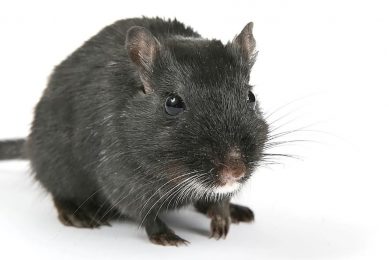
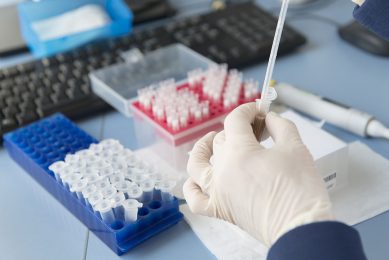
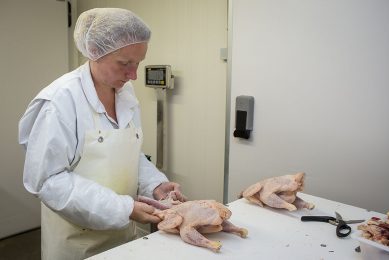
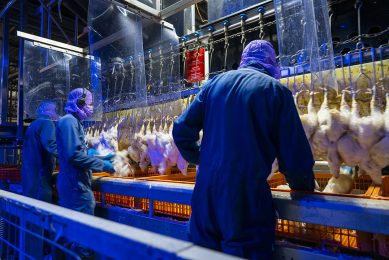



 WP Admin
WP Admin  Bewerk bericht
Bewerk bericht